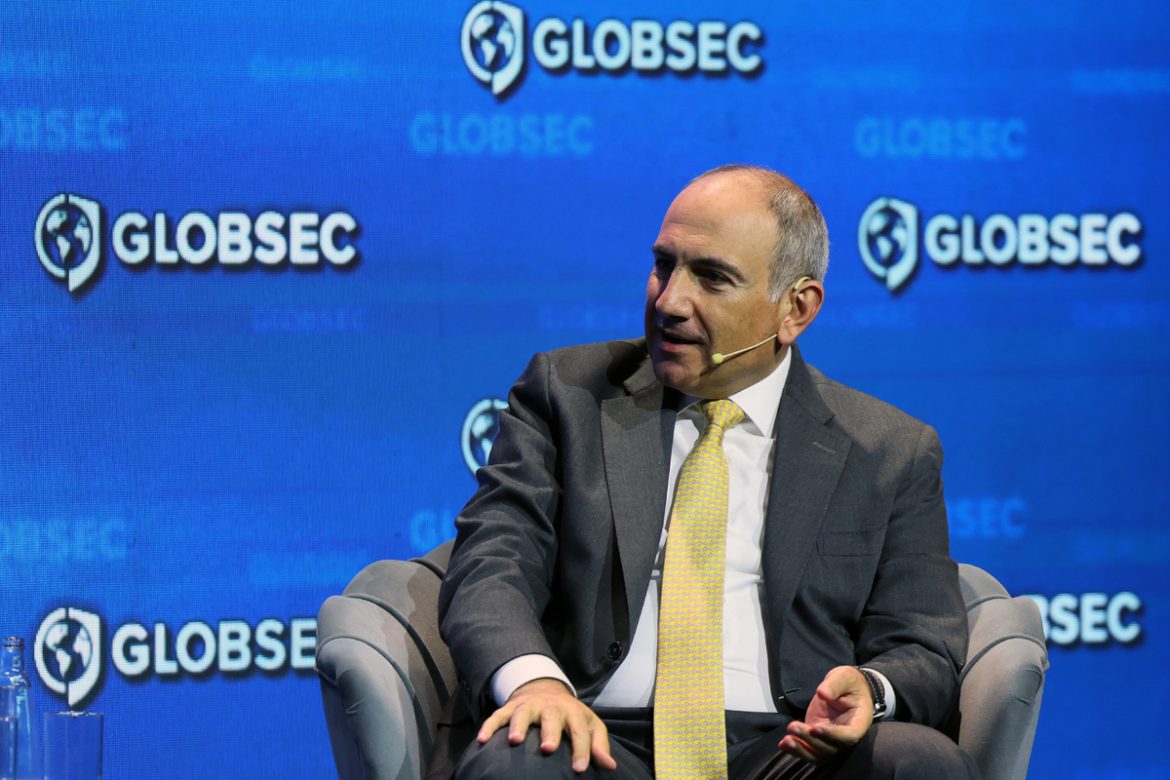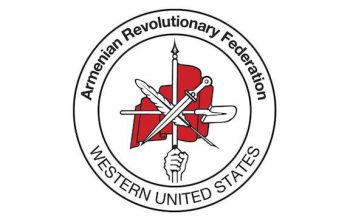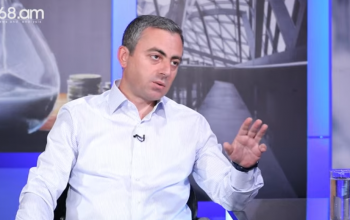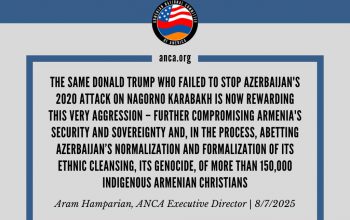Prime Minister Nikol Pashinyan said Friday that despite his government’s declared pursuit of European Union membership, Armenia has no immediate plans to expel Russian military forces stationed in the country.
“Last year, we reduced the level of Russian troop presence,” Pashinyan said during remarks at an international forum in the Czech Republic. “But on the other hand, we do not have the task at hand to end the presence of Russian troops in Armenia. We have another task: to be able to establish a lasting and stable peace with the countries of the region.”
The statement reflects the increasingly precarious balancing act pursued by the Armenian leadership — one that critics say prioritizes image over substance. More than a year ago, Pashinyan suspended Armenia’s participation in the Russian-led Collective Security Treaty Organization (CSTO), citing Moscow’s failure to uphold security guarantees amid Azerbaijani aggression. Yet since then, Yerevan has stopped short of formally withdrawing from the CSTO or demanding the closure of Russia’s 102nd military base in Gyumri and the removal of Russian border guards from Armenia’s frontiers with Turkey and Iran.
Despite rising anti-Russian rhetoric and moves toward Western alignment, signs have emerged in recent months of quiet rapprochement with Moscow. Russian Foreign Minister Sergei Lavrov and Federation Council Speaker Valentina Matvienko both visited Yerevan recently, underscoring the Kremlin’s continuing interest in maintaining influence over Armenia’s geopolitical trajectory.
Meanwhile, the Armenian government has continued to advance a legislative agenda that gestures westward. In April, the ruling Civil Contract party pushed through a declaration in parliament announcing the start of Armenia’s “EU accession process.” Russian officials denounced the move as a de facto withdrawal from the Eurasian Economic Union (EEU), a Moscow-led trade bloc that gives Armenia tariff-free access to Russian markets.
Armenian officials, in turn, offered reassurances that no formal application to the EU has been submitted — a familiar pattern of signaling in two directions.
Pashinyan acknowledged on Friday that Armenia will eventually have to choose between the EU and the Russian orbit, though he offered no timeline. The ambiguity is underscored by economic data: as of last year, Russia accounted for more than 41 percent of Armenia’s foreign trade, compared to just 7.7 percent with the EU.
Analysts warn that the current strategy risks alienating both sides. While Brussels may be wary of a partner still entangled in Russian military and economic structures, Moscow may view Armenia’s gradual pivot as a betrayal — one that could carry serious consequences for Armenia’s already fragile security landscape.
For now, Pashinyan appears content to walk the tightrope, hoping that geopolitical ambiguity can buy time. But with war raging just across Armenia’s southern border and the threat of renewed Azerbaijani aggression looming, that ambiguity may soon become untenable.




